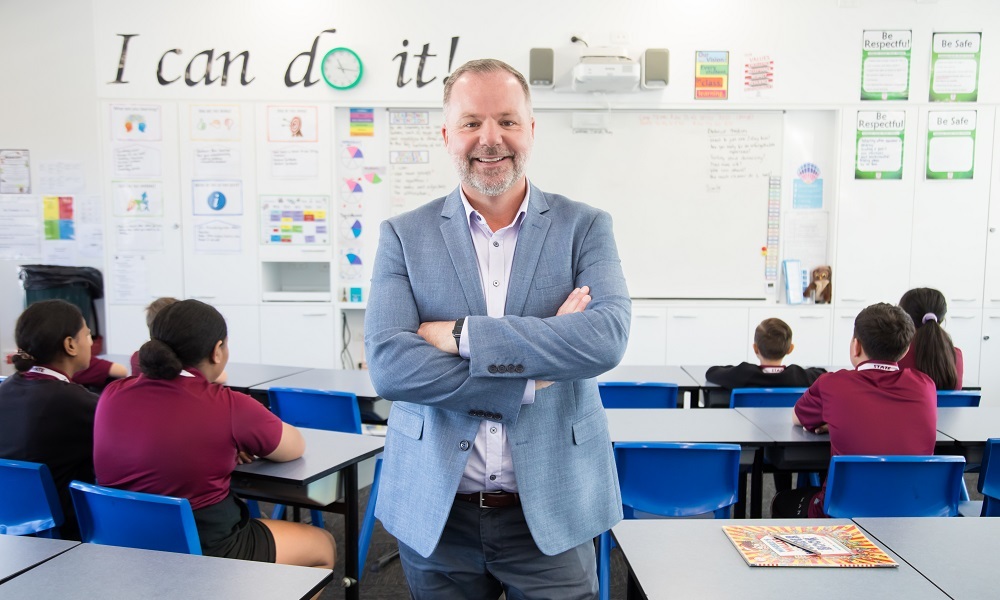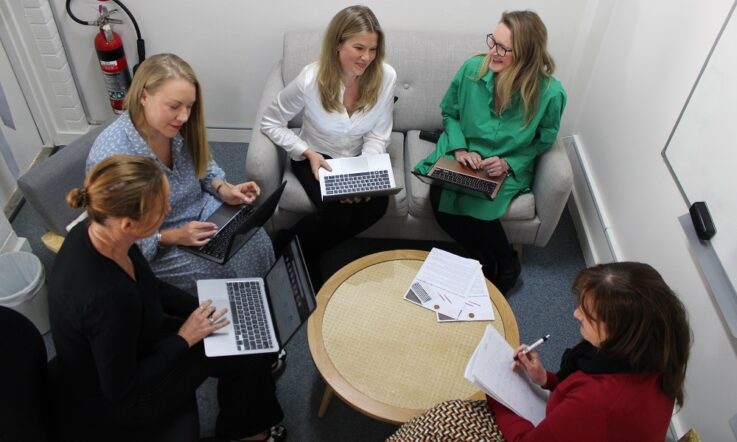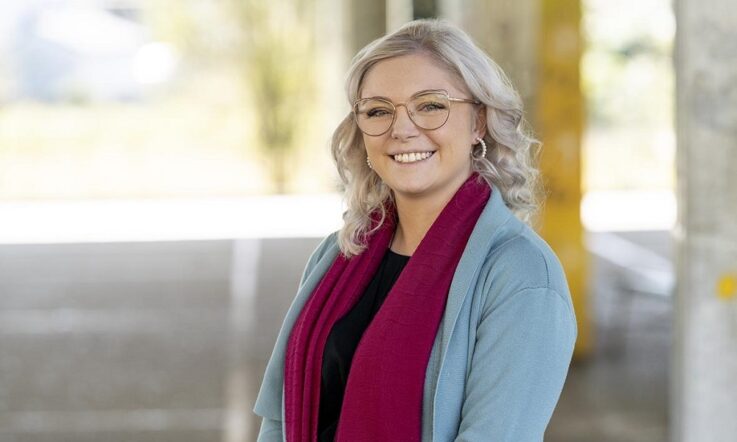Thanks for downloading this podcast from Teacher. I’m Dominique Russell.
In this episode, I’m delighted to be joined by Trent Cowley, Principal at Kingston State School, a primary school in the Logan Region of Queensland, about 30 kilometres south of Brisbane. Trent is in his third year as Principal and has recently been named a 2022 Commonwealth Bank Teaching Fellow; being recognised for his contribution to his school community.
In this episode, we learn more about what it means to Trent to be a visible leader, how he is working to build staff capacity, and the impact that his collaboration with other principals in the area has had on student outcomes, and the broader community. Let’s jump in.
Dominique Russell: Trent, thank you for joining us on this podcast episode and congratulations on being named a Commonwealth Bank 2022 Teaching Fellow. To begin, can you tell me about your career in education so far?
Trent Cowley: Yeah absolutely. Thanks so much for having me, it's a great opportunity. My career in education started in 2002. I started as a high school teacher and I started my career Woodridge State High school. So I taught for 10 years at Woodridge State High School and moved up through a beginning teacher, into the roles of Head of Department, into Acting Deputy Principal. That took me then into some other roles, as Acting Deputy Principal, over in Shailer Park State High School down to Upper Coomera State College.
And I finally secured a permanent Deputy Principal Position in Carinda State High School. Then I moved sideways as a Deputy Principal and helped to establish Queensland Pathway State College, so a school for disengaged students in the senior phase of learning. Then I moved to Marsden State High School as the Associate Principal – so that's now Australia's largest school – and then I was fortunate enough to take on the role of Principal here at Kingston State School, in a primary setting.
So my whole career was in the high school setting and this is my first time in the primary setting. I'm now in my third year as Principal here in Kingston State School.
DR: And you’ve been described by some as a visible leader. I'm really interested to find out what this means for you and why it's important to be visible leader for you?
TC: Yeah, great question. I think it's crucial that all leaders need to be visible. And by being visible, for me, that means being present. It means being present in the classrooms; it means leading by example; it means being present in the playground, talking to kids, building those relationships; building those relationships with students with staff, with parents, with the wider community.
It means stopping and just taking the time to listen to people. We know that in education we just want to be listened to and heard. And it doesn't matter if you're a student, if you're a teacher, if you're a teacher aide, if you’re a cleaner, if you're an admin assistant, it doesn't matter. Everyone deserves that respect, and everyone deserves to be listened to.
So for me, being visible is being that visible leader in a school, and leading by example, and being out there talking with everyone. Taking the time before and after school to meet with parents, to listen to their concerns if they've got them, or just to have a chat and genuinely invest in people, because we're in the business of people in education. So, you know, we have to invest the time to get to know one another. And then I feel that's the best way to build that strong culture in a school.
DR: And so it's your third year at Kingston State School now. Can you tell listeners about the school context, and I'm interested as well in finding out a little bit more what challenges the community was facing at the time you arrived and what was the school doing well?
TC: Kingston’s a fantastic school and it has a long proud history, for 110 years as of this year. It was the first school in Logan. So it's a very long, proud tradition to have here at Kingston.
But look, it is a very complex and challenging place as well. The ICSEA [Index of Community Socio-Educational Advantage] here at Kingston is 885, which is significantly disadvantaged. And along with that disadvantage comes some significant challenges for our community. So there is generational unemployment, there may be some of our families who struggle with alcohol and drug addiction problems, there's homelessness, there's poverty sometimes. Some of our families may experience domestic and physical violence in the home.
Despite these challenges, our students are resilient. They’re wonderful, they want to share everything with you. They want to talk to you; they want to get to know you. And our families have that sense of family with our school as well, there’s that connection. Because many of our families, the parents came here as students, the grandparents came here as students, so there's that longstanding tradition that Kingston is absolutely the part of the community.
But it's also the centre and the heart of the community. And I like to describe Kingston, the suburb, as the heart of Logan City as well. So, yes, there are challenges and it is complex, but along with that there is absolute wondrous things that happen in our community.
And part of those amazing things is the diversity that is in Kingston – 24% of our population here at Kingston are First Nations students and families. So that's 126 students of ours are Aboriginal and/or Torres Strait Islander. The other amazing statistic, percentage wise of population, is 36% of our students are Maori and/or [Pacific Islander]. So with that huge Polynesian influence here in Logan – a similar statistic would be across most of the Logan schools – but that just adds to the richness and diversity in our schools.
We have 60 different cultures – that’s six zero – 60 different cultures here as well, and so we're able to tap into that richness of that diversity. And our parents are able to share culture, and our students are. So when we celebrate days like Harmony Day, it's such an amazing thing to be a part of, and we can celebrate dance and culture and food and language and all of those things here at Kingston. So, a long, proud, tradition here Kingston.
Are there challenges in our community? Absolutely, but the thing that stood out to me when I first came here is the absolute passion and dedication of the teaching staff here. They’re all here because they want to make a difference. They’re all here because they're already making a difference, and they want to continue to make a difference to the lives of our students.
DR: And you’ve made some very clear strides during your time with so far as Principal to improve student outcomes and one area of focus for you has been building staff capacity even further. So can you tell me why you identified this as an important area to focus on, and what are some of the initiatives that you’ve implemented?
TC: Yeah absolutely. So some of the, absolutely, you talked about building staff capacity. In any school, you want the best possible teachers teaching our students in every classroom. So the number one priority for me is always, well, if we can have the most engaging lessons as possible that are being delivered to our students each and every day, then we’re going to get the best possible outcomes for our students.
When I came into Kingston, we were struggling a little bit with our level of achievement in English. So a couple of years ago, our level of achievement data (A to C) across the school was sitting at 48%. So that meant that 52% of our students were not passing English and, as a result, we were identified as a Priority Support Review [PSR] school.
So we were part of that PSR process with the Education Improvement Branch. And that set us on a real trajectory of improvement, because it's unacceptable to have 52% of our students not passing English. And so we were relentless in that pursuit of improvement. So we had a focus on writing – with the school, it always had a focus on reading, but we added that focus on writing. And we added the focus of wellbeing as well, because if students’ wellbeing needs are not being met, then no one is going to be ready to be learning in any classroom.
So with everyone having that sharp and narrow focus on wellbeing, and then having sharp and narrow focus on the improvement of reading, and writing as well, we were able to absolutely lift those results. And within a period of just under 18 months, we were able to see that lift of 18% (18.8% actually) increase in level of achievement (A to C) data.
So it’s got up to 68% of our kids passing English in that time frame. Is it where it needs to be? Absolutely not, but we’re absolutely on that right trajectory. And we're seeing leaps and bounds, our kids are improving.
We've implemented things like Heggerty’s Phonemic Awareness program here at the school, just so students are having those awareness of those letters and sounds, and they’re able to use that, they’re able to decode words, and they’re able to break up the sounds, and they’re able to identify those sounds in the early years. But we've not just identified that as a need in our Prep to 2 space, our whole staff have been trained in Heggerty’s.
This year we're moving into synthetic phonics and we’ll be doing that across the board as well (across the school). So we're really looking at those decodable texts for students to be using, so we can continue that improvement in reading. And with the improvement in reading comes the improvement in writing. So we’re on that correct learning journey; our staff are on the learning journey. It's been an interesting learning for myself, especially as I mentioned earlier, being a high school person, you know, I now know things like phonemic awareness – I didn't know what that was when I was a high school teacher.
But it's been a great learning journey to be a part of, to walk alongside the staff. And we know we're not where we want to be, we absolutely want to see 100% of our kids getting an A to C in English, we'd love that one day, but we will get there, we’re slowly chipping away at it, and we focus on every student one day at a time. And now all of our teachers know where our students are at and where they need to get them to be.
DR: And you’ve also joined a network of principals from neighbouring schools in the area. Can you tell me about what impact that’s had on your school and also the broader community?
TC: Yeah, it’s a brilliant cluster of schools. We’re known as the LCL Cluster, so the Logan Central Leaders Cluster, and it's a cluster of schools with Logan City Special School, 3 of the local high schools and 7 of the local primary schools as well.
So we meet together twice per term as principals and our common goal is to improve the outcomes of all of our students across all of our schools. And we can do that collectively by working and sharing best practice across the 11 schools. We have subclusters that are within our cluster – so our Deputy Principals meet, our First Nations representatives meet and our inclusive practices representatives meet as well. So they’re the 3 sub-clusters that meet that are also having a little bit more of a targeted and sharp and narrow focus, and they report back to us as a group of principals. So collectively when we work together we can have that intentional collaboration and that collective efficacy that's going to ultimately result in our students progressing.
Last term we, for the first time, got our student leaders together from across the 11 schools for a leadership breakfast, where we were able to invite the State Treasurer to be a part of the breakfast and share his leadership journey, and we were able to invite 2 of our ARDs [Assistant Regional Directors] from the region to be to be part of that breakfast as well and share their leadership journey. And that was a great opportunity for kids to come together across the 11 schools – high schools, primary schools, special school – and to get to know one another, ask questions.
And it was awesome to see our young student leaders in Year 6 really digging deep into the Year 12s and asking them about high school life and their aspirations and about what a leadership legacy is, so that’s another exciting way that we were able to partner as a part of our cluster.
DR: And so something else that you have in place is a case management system that has come about through the Lyn Sharratt’s work on clarity. Can you share with our listeners what this is in a bit more detail, and also the impact that that’s had on student outcomes?
TC: Absolutely, so part of the work we do with Lyn Sharratt, and one of the parameters that is part of Lyn Sharratt’s clarity work, is around that case management approach.
So we have a case management approach here at Kingston. We give our teachers an extra line off every week (so an extra lot of non-contact) and that enables our teachers to meet at several times throughout the term in cohorts.
So, for example, we might get our Year 6 teachers to meet. One of those Year 6 teachers will bring along [data on] a student who is identified as having some special needs, or might be struggling in the classroom, they might be struggling with their reading, their writing. So the teacher will bring along writing samples, reading samples, some examples of assessment that they've been doing (that student). And they've tried everything in the classroom, they’ve tried to differentiate, but nothing is really working, or they want a little bit of advice as to where to from here?
So the Year 6 teachers will present, we will all then have a look at what's going on in the classroom for that student and then a group of Knowledgeable Others – which are the other Year 6 teachers as part of the cohort, as well as myself, as well as our Head of Department Curriculum as well as our Learning Support teacher, as well as our Deputy Principal – we’re all there then to share our lens of what next. So what does it mean for the student? What can we collectively come up with to support this student? So there's the added bonus of this is, you’ve got many heads coming together to help support a teacher to improve their practice in the classroom; you've got the ability of us all to share our knowledge that we've all gained over our teaching careers.
DR: So just finally then Trent, looking ahead, what are some of your next plans or some of your future goals as Principal of Kingston State School?
TC: The work is never done and the work will always continue in every school setting that we’re in. But one of the biggest things that's very exciting for our school community is that Kingston State School has been identified as going to be Queensland’s first FamilyLinQ school site, which is extremely exciting for our school.
So by mid-next year we should have a brand-new building that opens up. Half of that building will be our brand-new admin building, the other half will be an integrated services hub that will bring together services such as health services – there’ll be 4 consultation rooms in there – so we're hoping to see health services available, like hopefully a paediatrician. We'd love to see paediatrician in there once a month. There might be a youth health nurse, so there might be able to be ongoing eye and ear checks. There might be general nursing that comes into work out of there. There might be a GP available, there might be some drug and alcohol counselling.
Another element of the hub will be training facilities. So we’re hoping to have adult training facilities where our parents can undergo certificate one courses, perhaps even certificate 2 courses, in general education for adults (financial literacy, literacy, numeracy), entry level certificate courses that can see our parents actually gain some skills and hopefully encourage them to step back into the workforce as well. That's another element of it.
And then we’ve got our wrap around services for our community. Many of the barriers for our parents to not being able to access some services sometimes is that lack of transport, that lack of ability to get to appointments, so the idea of FamilyLinQ is if those services are provided in a hub that's at school, and parents are already visiting school, it's removed that barrier of having to travel around the southeast, then those services are already available. So part of the idea of FamilyLinQ is that there's a one stop shop, you’re dropping the kids off at school, and then while you're there you can access these services as well. Really, really, exciting.
The concept of hubs is not new, but this concept of an integrated hub on a school site is absolutely new and ground-breaking. It's in partnership with the Bryan Foundation, so the Bryan Education Foundation are philanthropic group who are providing funds to facilitate workers who will be working in the hub, and it’s in partnership with Department of Education and Queensland Health also, and Metro South Health. So it's very exciting, it is a Queensland first, and we cannot wait for it to open.
We’re currently undergoing a vast amount of community consultation at the moment where we’re consulting with all the key stakeholders in our community because we're very mindful that we want it to be a community-led initiative and not something the Department is doing to the community. We want to be working for, with, and alongside the community and it has to be community driven.
I think that education is so important. And I think every teacher in every school is absolutely doing the best they can. We've all become teachers to make a difference in the lives of our students and it should be all of our moral purposes that we’re here to work absolutely for our students so that they may lead a life of choice rather than chance. That's absolutely my moral purpose, and I know that every teacher, we’re in it for the right reasons. Teaching is a challenging profession and the last few years with COVID and the teacher shortages that are currently happening, absolutely things can be tough, but we just need to work together and band together and continue doing the amazing work we’re doing in all of our schools.
That’s all for this episode. Thanks for listening. You will have heard Trent mention the work of Lyn Sharatt in our conversation – if you’d like to keep listening, you might be interested in our Teacher Talks episode from 2019 with Lyn Sharratt, where we interviewed her in front of a live audience to discuss the leadership approach of Learning Walks and Talks. To find that episode, just search for ‘Teacher Talks’ in our podcast feed. And don’t forget to subscribe to our channel so you never miss an episode.
Trent Cowley says, to him, being a visible leader means being visible in the school, leading by example, and frequently communicating with all members of the school community.
As a school leader, think of a recent example where you checked in with a student, staff member, and parent or carer in your school community. What did you learn from each of these experiences?



